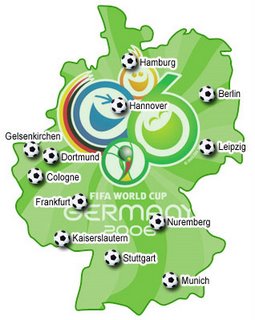To Prostitute or Not to Prostitute - that is the question.
 Almost ten years ago I worked for the Nagano Olympic Committee in preparation for the 19th Winter Games, here in Japan. I worked in Public Relations where, for better or worse, I got a crash course on some of the "Do's and Dont's" of putting a Big spin on mundane, everyday operations, all made in anticipation of "world class sports."
Almost ten years ago I worked for the Nagano Olympic Committee in preparation for the 19th Winter Games, here in Japan. I worked in Public Relations where, for better or worse, I got a crash course on some of the "Do's and Dont's" of putting a Big spin on mundane, everyday operations, all made in anticipation of "world class sports."Everyday I was phoned by reporters who were hoping to catch a scoop - usually of the scandalous or shocking sort - because, let's face it: that's what sells magazines and newspapers. Most of the journalists were interested in our preparedness for the possibility of terrorism (even before 9/11- hard to believe), whether our computers (sponsored by IBM) were on the verge of crashing or not, or just how many egregious sums of Yen had been spent under the table to convince the International Olympic Committee to bring the games to Nagano.
The reporters were pretty obnoxious, but, fortunately for my then-more-innocent outlook on life, they never forced me to deal with questions about prostitutes. Why? For one thing, in contrast to Germany, prostitution has (for better or for worse - I'll leave that debate aside for now) been illegal in Japan since the American Occupation. Germany on the other hand, apparently legalized prostitution in 2002. Based on the passing of this watershed legislation, it seems the planners of the 2006 World Cup Games have had to add an unprecedented division to its organizing committee: a working group on the construction of temporary brothels. Probably not once considered a fleeting possibility for Nagano, an estimated 40,000 prostitutes from around the world are anticipated to join the 400,000 prostitutes who already ply their trade in Germany.
 From a PR standpoint, the decision to legalize prostitution in Germany has certainly encouraged a lot of discourse regarding the relationship between human trafficking and the World Cup. Is this good for publicizing the World Cup? Well, the cynical side of me says, Yeah, of course! However, I also believe that the issue is making the Cup's publicists work harder for their money. Not surprisingly a number of feminists and human rights groups are calling on Germany to change its stance on prostitution. I learned about this problem, through an editorial in the International Herald Tribune, which was written by the president of Equality Now, an international women's rights organization. Even countries and trasnational organizations have gotten involved in the issue. The chairman of the global human rights subcommittee in the US Congress, for instance, recently condemned German planners as serious violators of international trafficking laws. Meanwhile the minister of justice in Sweden, Thomas Bodstroem, warns that the enormous payload of legalized prostitution naturally attracts "dishonest people willing exploit to young women and children."
From a PR standpoint, the decision to legalize prostitution in Germany has certainly encouraged a lot of discourse regarding the relationship between human trafficking and the World Cup. Is this good for publicizing the World Cup? Well, the cynical side of me says, Yeah, of course! However, I also believe that the issue is making the Cup's publicists work harder for their money. Not surprisingly a number of feminists and human rights groups are calling on Germany to change its stance on prostitution. I learned about this problem, through an editorial in the International Herald Tribune, which was written by the president of Equality Now, an international women's rights organization. Even countries and trasnational organizations have gotten involved in the issue. The chairman of the global human rights subcommittee in the US Congress, for instance, recently condemned German planners as serious violators of international trafficking laws. Meanwhile the minister of justice in Sweden, Thomas Bodstroem, warns that the enormous payload of legalized prostitution naturally attracts "dishonest people willing exploit to young women and children."For me the verdict is not so easy. Of course legalized prostitution makes it easier for your more "unsavory" types to conduct their commerce in Germany. But at least, I'm thinking, as long as it is legal, the women (and men - let's not forget about them) selling their bodies for a living are no longer the primary targets of prosecutors. At least with its legalization, law enforcers can spend their time more efficiently tracking down illegal trafficking rings and slavery syndicates. Moreover, in some articles I've read, prostitutes claim to feel safer and better protected in Germany. So I guess, in sum, for now, I'm all for the temporary stalls. I wish the division for temporary brothel construction the best of luck. And may their PR advocates suffer less at the hands of the media than those before them.


0 Comments:
Post a Comment
<< Home